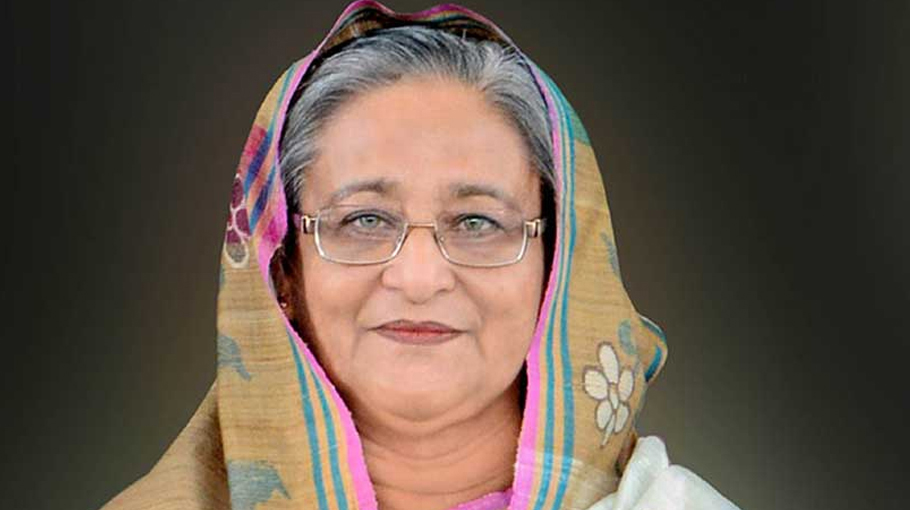Caretaker govt system lost ground

History tells us about the futility of the caretaker government as it failed to ensure free and fair election in the past. It has been amply proved that caretaker government system is not a panacea for election rigging. And at present it has no legal basis.
After winning the 1991 national elections, the BNP formed government headed by Khaleda Zia. Although BNP did not have absolute majorityin the elections, it could form government with the support of Jamaat-e-Islami. In the beginning there were allegations of rigging in some by-elections.
Not only political parties, but also people of different professions began to raise question whether it is possible to hold free, fair and impartial elections under aparty government.
After only two years, demand for a caretaker government was raised by political parties. Leader of the Opposition in Parliament Sheikh Hasina raised thedemand for national elections under a caretaker government. BNP’s ally Jamaat-e-Islami also joined the caretaker government movement. Asaduzzaman, the Awami League Member of Parliament elected from Magura, died, and the ElectionCommission announced a by-election in this seat. The election held on March 20,1994 was a milestone in the movement demanding a caretaker government.
The ruling BNP continued to ignore this demand as unconstitutional. The then Prime Minister Khaleda Zia called the outline unconstitutional and unrealistic.
She said, “It is not possible for any human being to be neutral except for madmenand children. The distance between the government and the opposition partiesgradually widened on the issue of caretaker government. The situation reached a stalemate. Sir Ninian, the representative of the Commonwealth Secretary General,stayed in Bangladesh for many days and tried to make two sides reach a compromise but failed.”
All the opposition parties collectively gave the government an ultimatum till December 27 to accept the demands. The government repeatedly rejected the demand. On December 28, all the opposition parties simultaneously resigned from Parliament.
On February 23, 1995, Speaker Sheikh Razzak Ali ruled that the resignation wasnot acceptable. On June 19, 1995, the absence of opposition members ofparliament for 90 consecutive working days was completed.
After too many rounds parleys and discussion, the Speaker sought advice from the Supreme Court for a decision. After hearing the amicus curiae, the Supreme Court ruled in favour of vacating the seats of the MPs, who resigned. The Speaker declared the seats of 142 opposition MPs vacant in two rounds. The Election Commission announced the by-election on September 17. The date of the by-election was postponed till December 15 due to floods. Opposition parties announced to boycott the elections. They continued to hold non-stop programs including demanding the resignation of the government, dissolution of parliament and elections under a caretaker government.
As a result of the strike-blockade, the country faced extreme difficulties. Instead of holding by elections the government dissolved the National Assembly on November 24 and announced the date of general elections on 18 January 1996. Later the date was shifted to February 15. Sixth National Assembly elections were held with the exclusion of all opposition parties. Voters turn out was insignificant, means it was a voter less election. At least 15 people were killed inwidespread violence across the country during the election. Extreme chaos wascreated. In her address to the nation on March 3, Khaleda Zia announced the introduction of the Caretaker Government Bill in the first session of the SixthNational Parliament.
The opposition parties continued their agitation as the Prime Minister’sannouncement did not mention the cancellation of the Sixth Parliament andresignation. The opposition parties called for continuous non-cooperationmovement from March 9 until the fall of the government. Janata Manch was built under the supervision of Dhaka Mayor Mohammad Hanif in front of the Press Clubon March 23. People from all walks of life took to the stage and expressed theirsolidarity with the movement of the opposition party.
The government tried to smash the dais (Manch) several times, but it was not possible due to the determination and resistance of common people and the crowd. The scenario quickly changed when Secretariat officials broke their service rules and took to the stage to express solidarity with the crowd. A sit-in strike was called until the government resigned. DESCO people disconnected the power line of Ganobhaban. In view of this situation, the government presented the Caretaker Government Bill in Parliament on March 21. The Non-Party Caretaker Government Bill was passed in Parliament late at night on March 26. It became law after receiving the President’sassent on March 28.
According to the new law, provision for the formation of caretaker government has been made for two reasons. First of all, if Parliament is dissolved for any reason, the caretaker government will assume power within 15 days of the dissolution of Parliament. Secondly, within 15 days after the dissolution of Parliament due to expiry of term, powers shall be transferred to the Caretaker Government as per Article 58C.
Caretaker Government shall not consist of more than 11 members. There will be achief adviser and not more than 10 advisers. Advisers must be qualified to beelected members of Parliament, must not be members of any political party or anyorganization of political parties, must agree in writing that they are not or will notbe candidates in the upcoming parliamentary elections and must not be more than72 years of age.
Chief Advisor is said to be the last retired Chief Justice among the retired ChiefJustices of Bangladesh. If the last retired Chief Justice is not available or if herefuses to accept the post of Chief Counsel then the immediately preceding retiredChief Justice. If a retired Chief Justice is not available or if he refuses to take upthe post of Chief Counsel then the last among the retired Judges of the AppellateDivision to retire. If a retired judge of the Appellate Division is not available or ifhe refuses to accept the post of Chief Counsel, the President in consultation with themajor political parties will appoint the chief adviser. In the absence of a suitablecandidate, the President will assume the role of Chief Adviser to a non-partisancaretaker government in addition to his own responsibilities. The Chief Adviser shall be entitled to the rank and emoluments and privileges of the Prime Minister. Advisors will receive ministerial rank and remuneration and benefits. A caretaker government cannot take any policy-making decisions without carrying out day-to-day operations. This government willprovide full support to the Election Commission to conduct peaceful, fair andimpartial general elections.
Demands for the resignation of the Khaleda Zia government intensified after theprovisions of the caretaker government became law. The entire country includingthe secretariat became angry. Section 144 was imposed inside the secretariat onMarch 28 and despite the deployment of army and police, the agitated secretariatcould not be controlled.
On the advice of the Prime Minister, the President dissolved the Sixth NationalAssembly on March 30 and Khaleda Zia resigned. According to the law, thePresident appointed former Chief Justice Muhammad Habibur Rahman asthe Chief Advisor to the Caretaker Government.
Awami League won 147 seats in the election and formed government with the support of Jatiya Party. BNP entered parliament as the largest opposition party in the country by winning 116 seats.
After five years in power, the government led by Sheikh Hasina handed overpower to the caretaker government as per the Constitution without any controversy.
A precedent is set for a peaceful transfer of power. The third caretakerGovernment’s chief adviser was the new controversy. Justice Latifur Rahman was the chief adviser.
The caretaker government headed by Justice Latifur Rahman gave rise to massivedebates at the outset. 17 secretaries of various ministries and departments weretransferred on the first night after assuming power. On the pretext of impartiality, the formerPrime Minister was ordered to leave the Ganabhaban.
In the Eighth National Assembly electionsheld in 2001, the BNP-led four-party coalition formed the government with two-thirds majority. Awami League got only 58 seats. Awami League questioned the impartiality of the caretaker government and allegations of massive electionrigging. Suspicion began to rise against the caretaker government. After getting an absolute majority in the elections, the BNP Jamaat coalition government started brutal torture on the leaders and workers of the Awami Leagueand the minorities across the country. Thousands of people were left without homes.
Stories of torture started pouring from all over the country. SheikhHasina, the leader of the opposition party, travelled across the country and stood byoppressed leaders and activists and minorities. There was a storm of condemnation against the BNP-Jamaat government at home and abroad. The top leadership of BNP Jamaat was worried about the political future when the allegations of corruptionalong with torture were on the rise. The blueprint for rigging future elections began.
According to the Constitution, the last retired Chief Justice was supposed to head thecaretaker government. In 2001, according to this provision, the power wastransferred without any controversy. The BNP-Jamaat alliance could not trust theformer Chief Justice during the transfer of power in 2006. Election engineeringbegan. By amending the Constitution in 2004, the age of judges was extended by 2years so that Justice KM Hasan could be the last retired Chief Justice as per BNP’schoice. He would be the chief advisor to the caretaker government. All opposition parties including Awami League protested this decision. Opposition leaders said that KM Hasan was a founding member of BNP. He was also retained as theinternational affairs secretary of BNP. He also once sought party nomination to bea candidate in the election. Later he was appointed a judge. As a High Courtjudge, he was embarrassed to handle the Bangabandhu assassination case as a closerelative of one of Bangabandhu’s killers. As part of the BNP-Jamaat coalition government’s blueprint for election engineering, the coalition government wasdesperate to appoint party man KM Hasan as its chief adviser.
In the face of protests from the opposition parties, initiatives were taken to discussthe caretaker government. According to the decision, BNP Secretary General Abdul Mannan Bhuiya and Awami League General Secretary Abdul Jalil sat in the meeting at Sangsad Bhavan. A 6-day series of meetings were held. Nothing happened. The two leaders agreed on many issues in the meeting but these wererejected in the party forum. The government and the opposition have gone to thepoint of no return. BNP did not dare appoint KM Hasan as the chief adviser ofthe caretaker government in the tide of blockade-movement in the streets.
However, the caretaker government was formed with President Yaz Uddin Ahmed as with ulterior motive. Every design was failed. Khaleda Zia compelled to handed over power and the fourth caretaker government of was formed.



